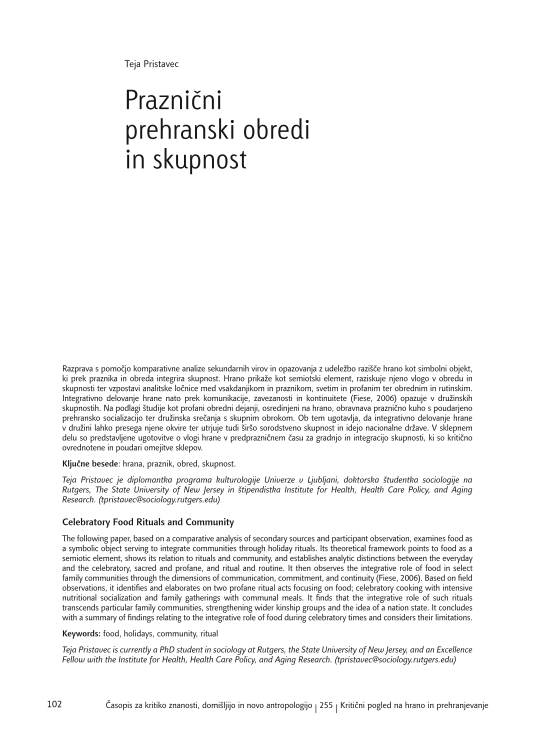The following paper, based on a comparative analysis of secondary sources and participant observation, examines food as a symbolic object serving to integrate communities through holiday rituals. Its theoretical framework points to food as a semiotic element, shows its relation to rituals and community, and establishes analytic distinctions between the everyday and the celebratory, sacred and profane, and ritual and routine. It then observes the integrative role of food in select family communities through the dimensions of communication, commitment, and continuity (Fiese, 2006). Based on field observations, it identifies and elaborates on two profane ritual acts focusing on food; celebratory cooking with intensive nutritional socialization and family gatherings with communal meals. It finds that the integrative role of such rituals transcends particular family communities, strengthening wider kinship groups and the idea of a nation state. It concludes with a summary of findings relating to the integrative role of food during celebratory times and considers their limitations.




